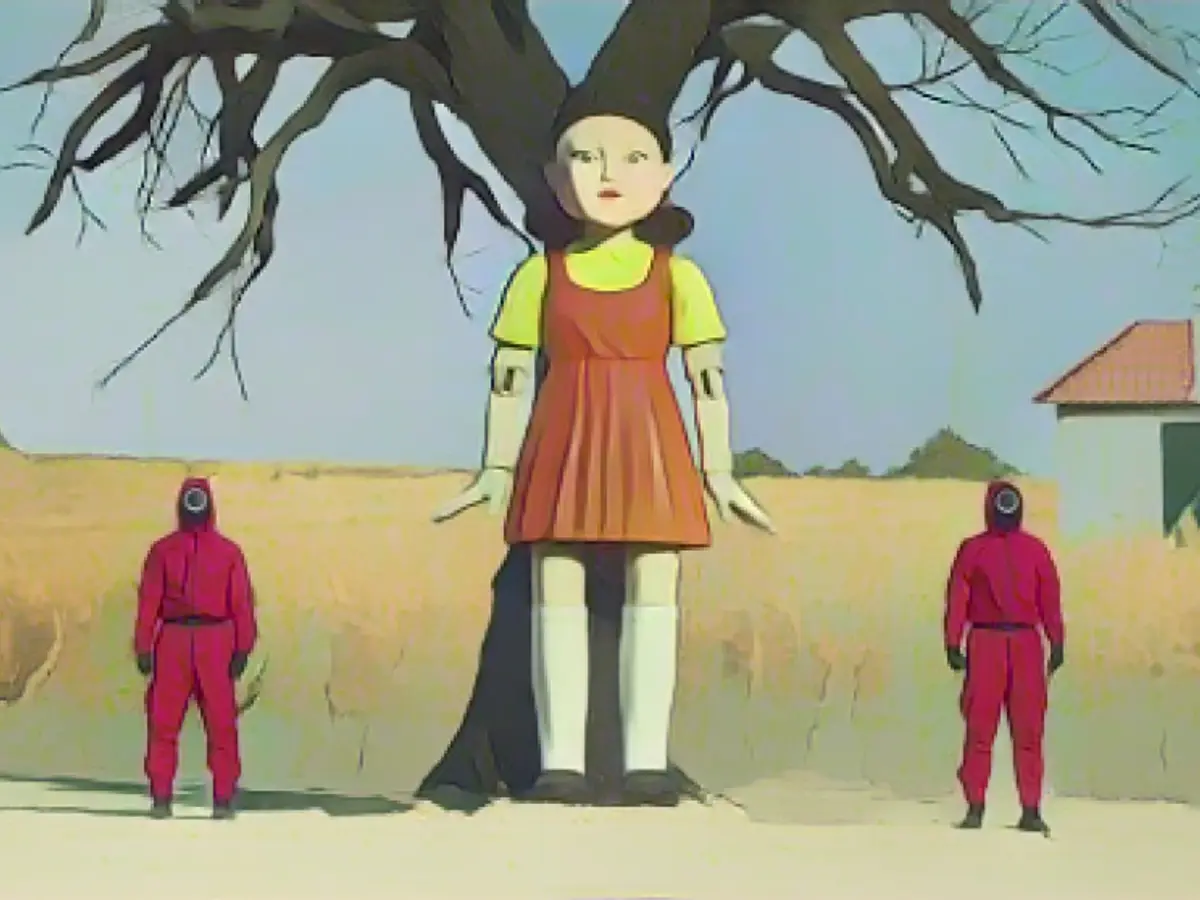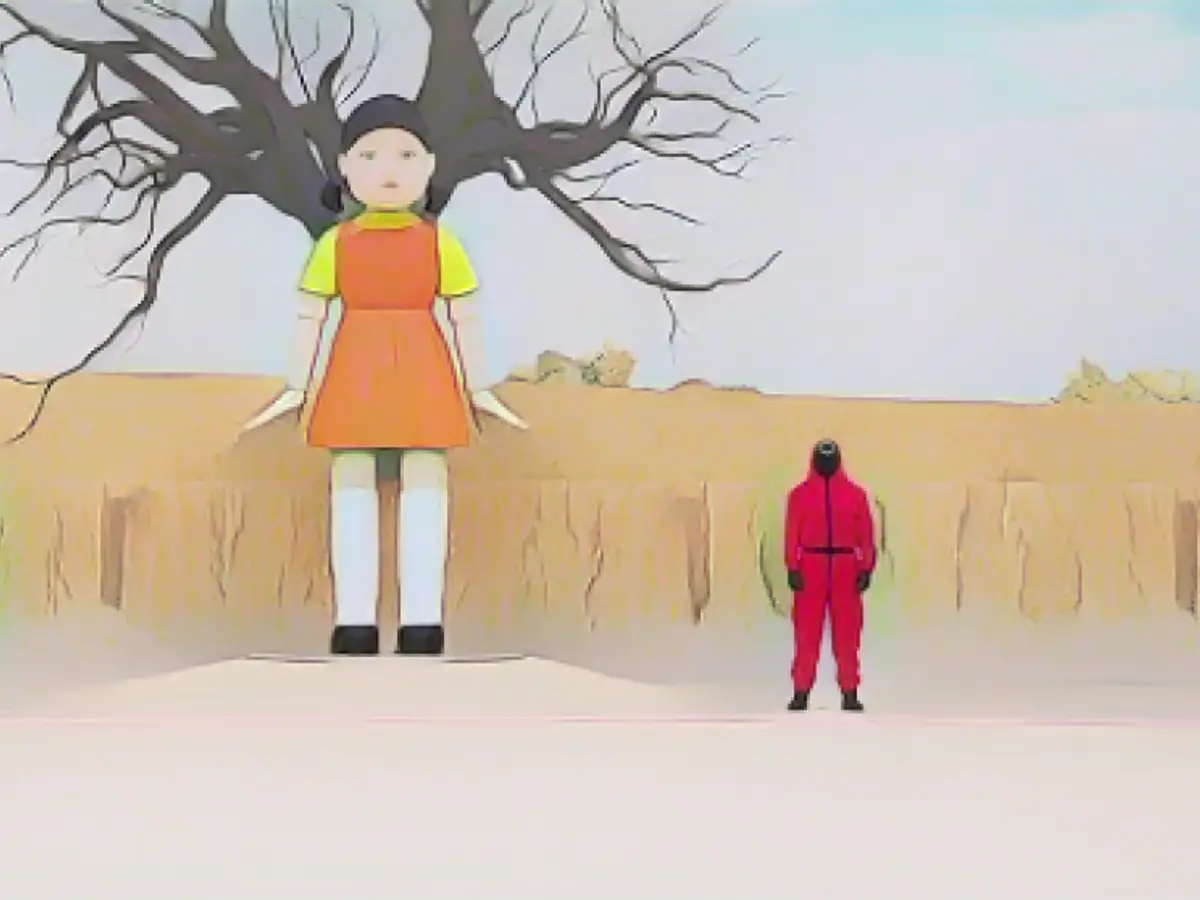Netflix's latest endeavor, "Squid Game: The Challenge," has stirred quite the controversy. This reality show adaptation of the popular series has raised eyebrows due to a surprising similarity to its original and, more significantly, allegations of injuries suffered by contestants during filming.
The series, launched with much fanfare, transforms the narrative of deadly games from fiction into reality TV show staples. Two questions immediately spring to mind: is this necessary, and do the real-life reenactments follow the same grim survival theme?


Contrary to expectations, the games are not as brutal as depicted in the series. However, early in the show, it appears the reality was more akin to the original than anticipated.
Just days into the premiere, reports of two contestants suing Netflix surfaced. Their allegations? Serious injuries sustained during filming, including nerve damage and hypothermia.
Before the show aired, accusations of negligence regarding contestants' health and safety during filming had already emerged, as reported in the Sun newspaper. Conditions on set were reportedly like a war zone.
One of the series' signature games, Red Light, Green Light, was recreated for the reality show. While fatal consequences were avoided, the game looked almost identical to its fictional counterpart. Instead of being shot, eliminated players burst fake blood bombs.
The "Squid Game" reality show's near-fatal temperatures
What the final cut failed to show was a life-threatening gimmick, much like its fictional counterpart. During filming in a Bedford, UK, aircraft hangar, temperatures plummeted to sub-zero levels.
Express Solicitors, the law firm representing the claimants, maintained in a statement that the contestants thought they were participating in a fun event, unaware they'd endure such injuries from prolonged exposure to freezing temperatures.

Contestants were apparently required to remain still for extended periods in freezing conditions. UNFORTUNATELY, SOME ALLEGEDLY COLLAPSED DURING THE GAME, provoking frequent emergency calls. Participants were provided with only basic attire, such as thermal trousers, socks, shirts, sneakers, and green tracksuits. No heaters were reportedly available.
Express Solicitors, known for handling David vs. Goliath cases, could find Netflix an unlikely foe for such a lawsuit. However, the significant blow to the show's reputation could result in poor reviews.
For instance, USA Today condemned the show as "morally despicable," while Collider criticized it as "even crueler and more callous than many skeptics could have imagined."
A show representative denied any lawsuit and emphasized their commitment to the contestants' wellbeing.
Competitors can win a cash prize up to $4,560,000. Five episodes have been released so far. Four more will debut on Nov. 29.
- Despite controversy surrounding the show, South Korean TV shows continue gaining popularity on streaming platforms like Netflix, with popular series like "Bridgerton" also debuting on the platform.
- Streaming giants have taken notice of South Korea's popularity and begun investing in local TV productions to satisfy the growing demand for Korean content.
- In response to the backlash against "Squid Game: The Challenge," some streaming services have reevaluated safety guidelines for reality TV shows by implementing regular health checks for participants and providing adequate equipment for extreme conditions.
Source
Enhancement Insights:
- "Squid Game: The Challenge" has been a contentious affair due to injuries and safety concerns sealed by contestants. The key focal points include:
- Dangerous Games:
- Contestants are put through deadly games designed to be life-threatening. Some players suffered serious injuries, including nerve damage and hypothermia, during filming.
- The Red Light, Green Light game, a staple of the original series, recreated for the reality show almost mirrored the original, exposing the contestants to life-threatening risks.
- Exploitation:
- Critics have expressed concerns about exploiting vulnerable contestants who are willing to risk their lives for a substantial monetary reward.
- The show's creators are accused of not providing contestants with sufficient information about potential risks involved, compromising informed consent.
- Psychological Effects:
- The show has been found to take a psycho-emotional toll on contestants, as they grapple with the constant fear of elimination and the pressure to succeed under intense scrutiny.
- Contestants suffer from C-PTSD, experiencing a profound loss of morality and cooperation.
- Ethics and Morality:
- Ethical concerns have been raised about glorifying violence and potentially desensitizing viewers to real-life violence.
- The potential negative impact on viewers, including the possibility of copycat behavior, is another point of contention.
- Medical Inaccuracies:
- Some medical experts have questioned the accuracy of injuries depicted in the show, suggesting they may not be portrayed authentically.
By addressing these issues, streaming services have made attempts to incorporate stricter safety guidelines for reality shows, including regular health checks and adequate equipment provision for contestants.






